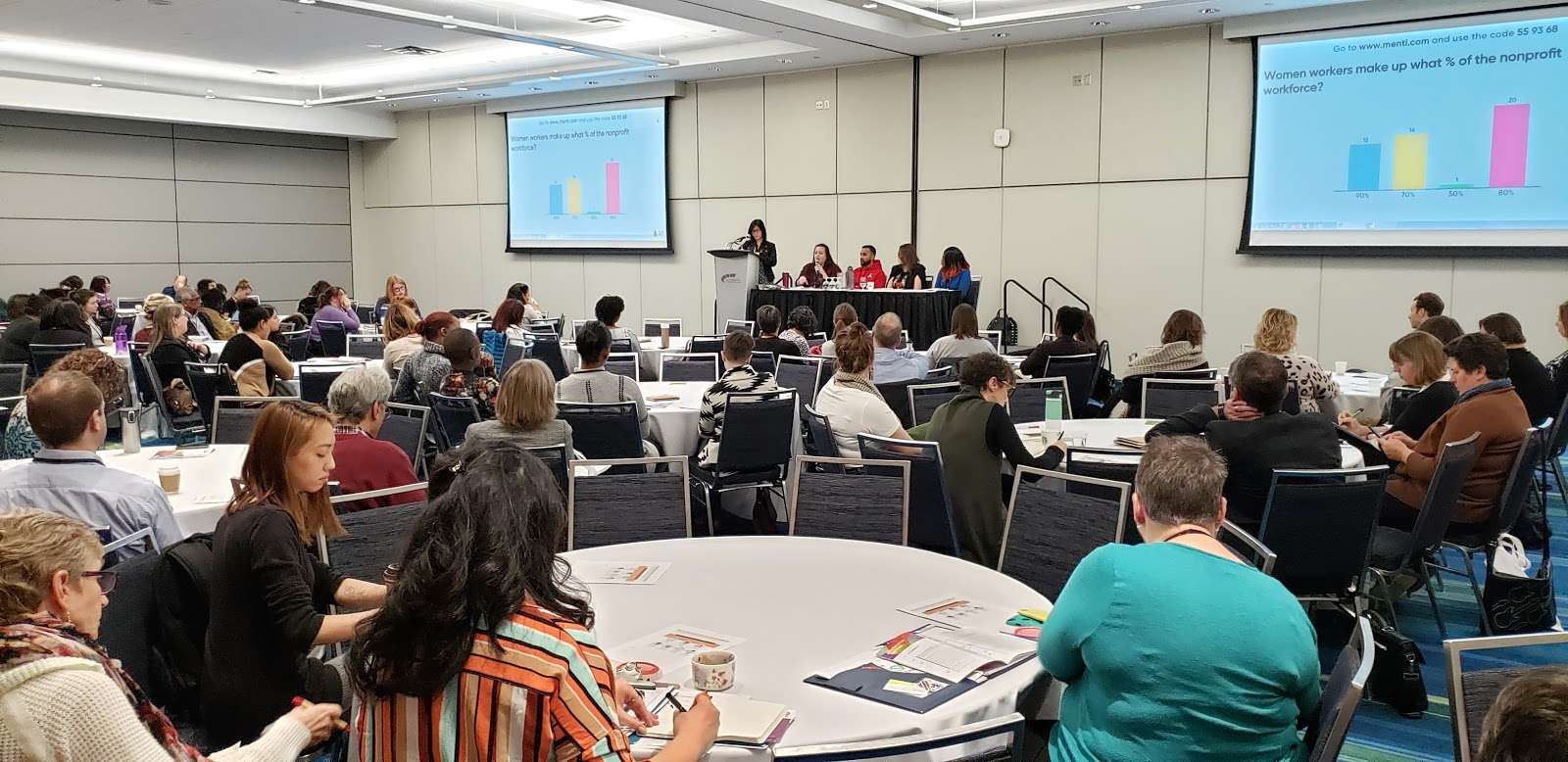
Blog
No matter how you slice it, workplace legislation matters to us all
Over the past seven years, ONN has been actively working on labour force issues affecting Ontario’s nonprofit sector. As our work has evolved, we have become more focused and intentional on our sector’s role as employers and economic actors.
ONN’s vision is to mobilize a decent work movement across the Ontario nonprofit sector that will allow organizations to more effectively achieve their missions because they provide decent work to their employees. The premise? With healthier, happier, and better-supported workers, nonprofits can better meet their mission and deliver their programs and services.
The decent work movement also presents an opportunity for the nonprofit sector to act as a champion of working conditions and social policies that not only ensure dignified and supportive work environments for our own employees, but also for all Ontario workers. And the time to act is now. There’s no shortage of evidence that the labour force, and communities, are struggling with precarious work, disappearing benefits, demographic shifts and technological innovation.
This could mean serious risks for the nonprofit sector if we can’t recruit all the talent we need in the future to meet our missions and serve our communities.
Moving the marker in three ways
ONN’s current work is focused on achieving progress at three levels:
- What can individual organizations do to support decent work?
- What can our networks or subsectors do together?
- What systemic transformations do we need that will benefit all of us – our sector and the rest of Ontarians?
A strategic approach
In order to achieve our vision, we cannot rely on individual organizational practices alone. We must challenge and change the broader systems that affect our workforce: public policy and legislation, funding systems, evaluation systems, and access to nonprofit-driven solutions (like a pension plan and employee benefits) that affect all nonprofits, whether they have one part-time employee or a staff complement of hundreds.
This week’s announcement from the Ontario government about proposed reforms to Ontario labour legislation is all about systemic changes.
Yes, this costs money
There is no doubt that investing in decent work costs money – and nonprofits are operating in a resource-scarce environment. The legislative changes announced this week will affect our sector’s bottom line as employers. It will be essential that in advocating for decent work, we also advocate for the investments needed to make it happen. This means talking to donors and funders – including corporate, foundations and government – and acknowledging the real cost of running our organizations and the role we all play in ensuring that our workforces are healthy and resilient.
Identifying the specific impact on the sector
Once details of the legislation are released and public consultations begin this summer, watch out for ONN’s survey to help us identify the impact of these legislative developments on the nonprofit sector. We will be analyzing the proposed changes and participating in committee hearings – and we’ll make sure to share your voices and keep our network informed as we go. We will also ensure we have a process in place to identify implementation challenges as they arise as these reforms go into effect.
With healthier, happier, and better-supported workers, nonprofits can lead by example, and will be better positioned to strengthen the social, economic and cultural fabric of their communities and our province.
Join the discussion
Want to share your ideas and thoughts? Reach out to Monina Febria, ONN Decent Work Project Lead, [email protected].
Some stats
- 22% of Ontarians are now employed in some form of precarious labour. In the GTA that number is 53% (Toronoto Star)
- An estimated 33% or approximately 1.6 million Ontarians earn less than $15/hr (CBC)
- More than a quarter of Ontario workers would receive a pay hike through the proposed increase to the minimum wage. (Government of Ontario)
- At $15 an hour, a full-time, 40-hour-a-week minimum wage job would pay $600 a week or $31,200 a year, compared to $456 a week or $23,712 at the current level of $11.40 per hour. (Macleans)
Ontario government release
- The Facts
- Fair Wages & Better Jobs Act, 2017 (Legislation that will be introduced)






